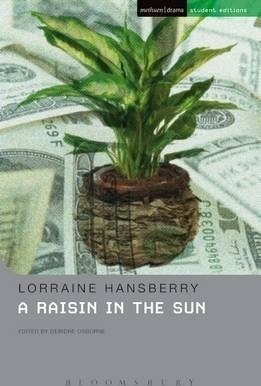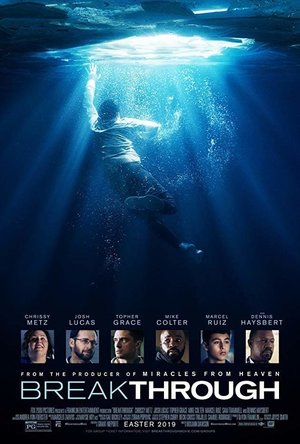
Superbook Kid’s Bible, Videos and Games
Book and Education
App
This FREE Kid's Bible app brings the Bible to life for the entire family with a full Bible, videos,...

White Noise
Health & Fitness and Lifestyle
App
Do you have trouble going to sleep? Are you traveling on a plane and need a quick power nap? Does...

Catholic New American Bible Revised Edition
Reference
App
This iPhone/iPad app has been approved by the United States Conference of Catholic Bishops (USCCB). ...

xComfort Smart Home
Lifestyle
App
Please update your xComfort Smart Home Controller also to use the new features!! xComfort - Make...

Bird Song Id Automatic Recognition & Reference - Birds of the British Isles
Reference
App
The original and the best, accept no cheap imitations ! Record a bird singing and use Automatic...

Vogelzang Id Nederland Automatische Herkenning
Reference and Book
App
The original and the best, accept no cheap imitations ! Record a bird singing and use Automatic...
Becs (244 KP) rated A Raisin in the Sun in Books
Oct 2, 2019
A Raisin in the Sun by Lorraine Hansberry
Genre: Literary Classic, Play, Drama, Fiction
Synopsis: First produced in 1959, A Raisin in the Sun was awarded the New York Drama Critics Circle Award and hailed as a watershed in American drama. Not only a pioneering work by an African-American playwright – Lorraine Hansberry’s play was also a radically new representation of black life, resolutely authentic, fiercely unsentimental, and unflinching in its vision of what happens to people whose dreams are constantly deferred. In her portrait of an embattled Chicago family, Hansberry anticapted issues that range from generational clashes to the civil rights and women’s movements. She also posed the essential questions – about identity, justice, and moral responsibility – at the heart of those great struggles. The result is an American classic.
Audience/Reading Level: Middle School +
Interests: Plays, dramas, literary classics, racial segregation, women’s movement, 50s era.
Point of View: Third Person Omniscient
Difficulty Reading: Not at all, I rushed through it because I loved it so much! As in some of Shakespeares plays, you don’t get stuck on the general language of the era it was written, as it’s written close to a book you would get from this era.
Promise: “Award-winning drama of the hopes and aspirations of a struggling, working-class family living on the South Side of Chicago connected profoundly with the psyche of black America–and changed American theater forever.” – It did. 🙂
Insights: I love reading plays as it’s a way to step out of a comfort zone of reading Young Adult novels. It gives me a chance to dip into my theater/acting side and use what I’ve learned from theatre classes. A Raisin in the Sun is a well-written American classic that honestly should be read in every school from middle school and up. The lessens that are taught throughout the play are subtle yet obvious which creates a background that we can use in our every day life.
Ah-Ha Moment: The moment that Beneatha came into the picture and was a total feminist. Man, she’s my favorite character besides Mama (Lena Younger) and her little plant.
Favorite Quotes: “Beneatha: Love him? There is nothing left to love. Mama: There is always something left to love. And if you ain’t learned that, you ain’t learned nothing. (Looking at her) Have you cried for that boy today? I don’t mean for yourself and for the family ’cause we lost the money. I mean for him: what he been through and what it done to him. Child, when do you think is the time to love somebody the most? When they done good and made things easy for everybody? Well then, you ain’t through learning – because that ain’t the time at all. It’s when he’s at his lowest and can’t believe in hisself ’cause the world done whipped him so! when you starts measuring somebody, measure him right, child, measure him right. Make sure you done taken into account what hills and valleys he come through before he got to wherever he is.”
“Mama, you don’t understand. It’s all a matter of ideas, and God is just one idea I don’t acept. It’s not important. I am not going out and commit crimes or be immoral because I don’t believe in God. I don’t even think about it. It’s just that I get so tired of Him getting credit for all the things the human race achieves through its own stubborn effort. There simply is no God! There is only Man, and it’s he who makes miracles!”
What will you gain: A haunting yet revealing play that will be as fresh of a read today, as it was in the 50’s.
Aesthetics: The entire play. The cover. The characters. The underlying meaning beneath it all. The era it was written and is based off of. Just everything about this little book.
“I want to fly! I want to touch the sun!”
“Finish your eggs first.”
Emma @ The Movies (1786 KP) rated Breakthrough (2019) in Movies
Jun 22, 2019 (Updated Sep 25, 2019)
John is off with his friends having fun, and what's more fun than playing out on a frozen lake? By the time they hear the crack it's too late, the three boys go under. With the emergency services on their way it's a countdown to rescuing them. Two of them have their head above water, but John, knocked unconscious while trying to help his friend out of the water, is sinking. When water rescue appears it may already be too late. They take the search slowly, but John could be anywhere, it's almost certainly too late. Tommy is about to call an end to the search when he hears someone telling him to go back, and there he is.
Rushed to the hospital, the doctors and staff work on trying to bring him back, but as the time elapses there is nothing to do but continue until his family arrive. Joyce, his mother, is devastated and not willing to accept that it's the end... and she prays, asking god to save her son... the monitor beeps to life.
Everywhere I see descriptions of this it says "christian drama". I honestly don't see that the word "christian" needs to be in there. Sure, Joyce prays a fair bit, and their pastor is in it a lot too, but it's still just a drama about something miraculous happening.
By far the best performance for me was Chrissy Metz. Joyce comes across as a very determined woman in everything that she does, and Metz really makes that stand out. From the happiness to the heartbreak, it's all believeable, which sometimes doesn't happen with films that are based on true stories.
I enjoyed Mike Colter as Tommy too. As a non-religious man trying to deal with what happened to him, and what he sees happening to John, the thought process was clear on his face and I liked how he visually interacted with those around him in those moments.
By far the strongest scene for me was the one I mentioned above in the hospital. I think it's always quite challenging to create something that has an impact on the viewer when they already know what the outcome is going to be. In this instance we already know that John doesn't die, we just don't know how the situation is remedied. The hospital staff have left the room and Joyce is with her son, she doesn't want to accept what's before her eyes. We cut between her and the staff outside in the hall in what builds up to an incredible moment. The staff reacting to Joyce as she wails in pain is something that was just stuck in my chest, I could really feel it.
While some are saying that Breakthrough is a christian film, but personally it feels more like a film about community. It's about family, about friends, about everyone around us. It also captures some of the things you have to deal with in these situations. Although fleeting at the end of the film, we see John coming to terms with the fact he survived, his miracle is hard to take for other people and they feel like they need answers, but from where? Him?
Everything about the film felt thoughtful and real, even though some bits felt a little cramped at times. By that I mean they clearly wanted to show the "negativity" and realistic thinking of those around John, he didn't have good odds and everyone would be talking about that. But getting that in felt a little cluttered with everything else going on.
I enjoyed this "christian" film, or as I like to call it "film". I spent a significant amount of time with my sleeves pressed up under my eyes, and when the doctors on screen were telling people to breathe I was doing it to recover. It's not a pushy film, I didn't feel the urge to go and join a congregation after watching it, it's just a wonderful reminder that miracles can happen, and while you wait for them there will be people all around you for support even when you don't expect it.
What you should do
It may not be a film to watch for some, I imagine the content may bring back memories that are difficult, but if you're up to it then it's well worth a watch.
Movie thing you wish you could take home
Just a smidge of Joyce's determination would be good.
Cody Cook (8 KP) rated Writings Of Thomas Paine Volume 4 (1794 1796); The Age Of Reason in Books
Jun 29, 2018
The book seems to have had three major objectives: the support of deism, the ridicule of what Paine found loathsome in Christian theology, and the demonstration of how poor an example the Bible is as a reflection of God.
In a sense, Paine's arguments against Christian theology and scripture were meant to prop up his deistic philosophy. Paine hoped that in demonizing Christianity while giving evidences for God, he would somehow have made the case for deism. But this is not so. If Christianity is false, but God exists nonetheless, we are not left only with deism. There are an infinite number of possibilities for us to examine regarding the nature of God, and far too many left over once we have eliminated the obviously false ones. In favor of deism Paine has only one argument—his dislike of supernatural revelation, which is to say that deism appeals to his culturally derived preferences. In any case, Paine's thinking on the matter seemed to be thus: if supernatural revelation could be shown to be inadequate and the development of complex theology shown to be an error, one could still salvage a belief in God as Creator, but not as an interloper in human affairs who required mediators.
That being said, in his support of deism, Paine makes some arguments to demonstrate the reasonableness in belief in, if not the logical necessity of the existence of, God which could be equally used by Christians.
For instance, just as the apostle Paul argued in his epistle to the Romans that, "what can be known about God is plain to [even pagans], because God has shown it to them. For his invisible attributes, namely, his eternal power and divine nature, have been clearly perceived, ever since the creation of the world, in the things that have been made" (Romans 1:19-20, ESV), so also Paine can say that, "the Creation speaketh an universal language [which points to the existence of God], independently of human speech or human language, multiplied and various as they be."
The key point on which Paine differs from Paul on this issue is in his optimism about man's ability to reason to God without His assisting from the outside. Whereas Paul sees the plainness of God from natural revelation as an argument against the inherent goodness of a species which can read the record of nature and nevertheless rejects its Source's obvious existence, Paine thinks that nature and reason can and do lead us directly to the knowledge of God's existence apart from any gracious overtures or direct revelation.
On the witness of nature, Paine claims, and is quite correct, that, "THE WORD OF GOD IS THE CREATION WE BEHOLD: And it is in this word, which no human invention can counterfeit or alter, that God speaketh universally to man." What is not plainly clear, however, is that man is free enough from the noetic effects of sin to reach such an obvious conclusion on his own. Indeed, the attempts of mankind to create a religion which represents the truth have invariably landed them at paganism. By paganism I mean a system of belief based, as Yehezkel Kaufmann and John N. Oswalt have shown, on continuity.iv In polytheism, even the supernatural is not really supernatural, but is perhaps in some way above humans while not being altogether distinct from us. What happens to the gods is merely what happens to human beings and the natural world writ large, which is why the gods are, like us, victims of fate, and why pagan fertility rituals have attempted to influence nature by influencing the gods which represent it in accordance with the deeper magic of the eternal universe we all inhabit.
When mankind has looked at nature without the benefit of supernatural revelation, he has not been consciously aware of a Being outside of nature which is necessarily responsible for it. His reasoning to metaphysics is based entirely on his own naturalistic categories derived from his own experience. According to Moses, it took God revealing Himself to the Hebrews for anyone to understand what Paine thinks anyone can plainly see.
The goal of deism is to hold onto what the western mind, which values extreme independence of thought, views as attractive in theism while casting aside what it finds distasteful. But as C.S. Lewis remarked, Aslan is not a tame lion. If a sovereign God exists, He cannot be limited by your desires of what you'd like Him to be. For this reason, the deism of men like Paine served as a cultural stepping stone toward the atheism of later intellectuals.
For Paine, as for other deists and atheists like him, it is not that Christianity has been subjected to reason and found wanting, but that it has been subjected to his own private and culturally-determined tastes and preferences and has failed to satisfy. This is the flipside of the anti-religious claim that those who believe in a given religion only do so because of their cultural conditioning: the anti-religionist is also conditioned in a similar way. Of course, how one comes to believe a certain thing has no bearing on whether that thing is true in itself, and this is true whether Christianity, atheism, or any other view is correct. But it must be stated that the deist or atheist is not immune from the epistemic difficulties which he so condescendingly heaps on theists.
One of the befuddling ironies of Paine's work is that around the time he was writing about the revealed religions as, “no other than human inventions set up to terrify and enslave mankind, and monopolize power and profit," the French were turning churches into “temples of reason” and murdering thousands at the guillotine (an instrument of execution now most strongly identified with France's godless reign of terror). Paine, who nearly lost his own life during the French Revolution, saw the danger of this atheism and hoped to stay its progress, despite the risk to his own life in attempting to do so.
What is odd is that Paine managed to blame this violent atheism upon the Christian faith! Obfuscated Paine:
"The Idea, always dangerous to Society as it is derogatory to the Almighty, — that priests could forgive sins, — though it seemed to exist no longer, had blunted the feelings of humanity, and callously prepared men for the commission of all crimes. The intolerant spirit of church persecution had transferred itself into politics; the tribunals, stiled Revolutionary, supplied the place of an Inquisition; and the Guillotine of the Stake. I saw many of my most intimate friends destroyed; others daily carried to prison; and I had reason to believe, and had also intimations given me, that the same danger was approaching myself."
That Robespierre's deism finally managed to supplant the revolutionary state's atheism and that peace, love, and understanding did not then spread throughout the land undermines Paine's claims. Paine felt that the revolution in politics, especially as represented in America, would necessarily lead to a revolution in religion, and that this religious revolution would result in wide acceptance of deism. The common link between these two revolutions was the idea that the individual man was sovereign and could determine for himself what was right and wrong based on his autonomous reason. What Paine was too myopic to see was that in France's violence and atheism was found the logical consequence of his individualistic philosophy. In summary, it is not Christianity which is dangerous, but the spirit of autonomy which leads inevitably into authoritarianism by way of human desire.
As should be clear by now, Paine failed to understand that human beings have a strong tendency to set impartial reason aside and to simply evaluate reality based on their desires and psychological states. This is no more obvious than in his own ideas as expressed in The Age of Reason. Like Paine's tendency to designate every book in the Old Testament which he likes as having been written originally by a gentile and translated into Hebrew, so many of his criticisms of Christian theology are far more a reflection upon himself than of revealed Christianity. One has only to look at Paine's description of Jesus Christ as a “virtuous reformer and revolutionist” to marvel that Paine was so poor at introspection so as to not understand that he was describing himself.
There is much more that could be said about this work, but in the interest of being somewhat concise, I'll end my comments here. If you found this analysis to be useful, be sure to check out my profile and look for my work discussing Paine and other anti-Christian writers coming soon.


